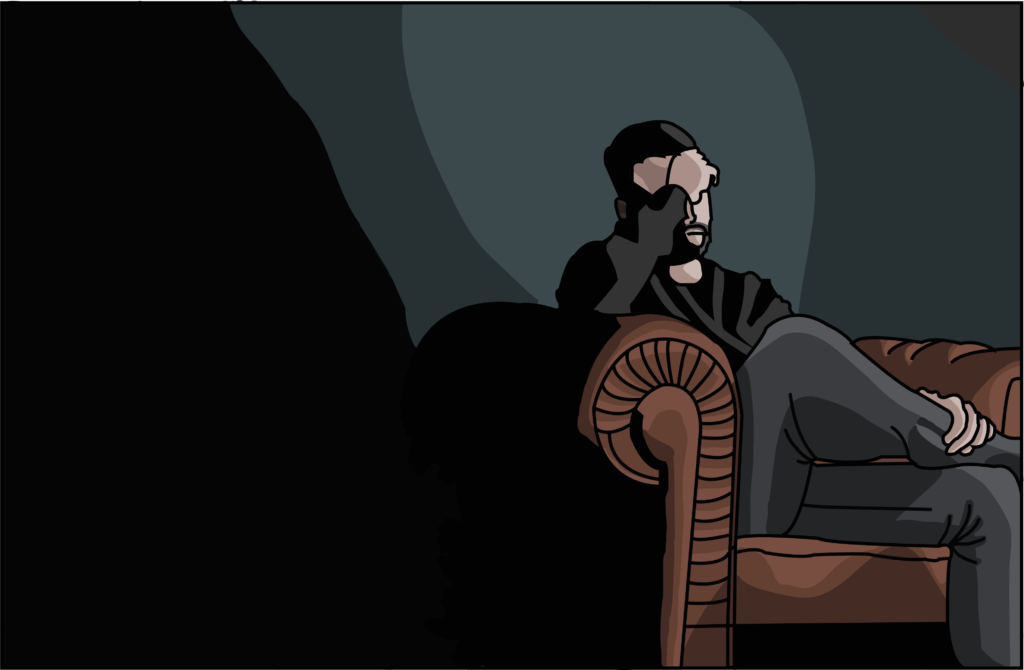Posted by Maria Droste Counseling Center on Jun 08, 2020 in Stress and Anxiety

With all the uncertainty and upheaval most people are experiencing as a result of COVID-19, anxiety is a word that comes up a lot. But, what is anxiety, really?
“We are wired to feel anxiety sometimes,” said Kim Stromgren, MA, LPC, therapist at Maria Droste Counseling Center. “It is the body’s way of manifesting what we are feeling.” Sometimes, anxiety escalates disproportionately to what is actually happening and becomes a disorder, but in general, it is a normal physical response to fear that alerts us to danger so we can prepare.
Why am I experiencing more anxiety now?
“Right now people are feeling anxiety regardless of their individual circumstances with worries about health, finances and wondering when things will return to normal,” said Kim. Circumstances beyond our control are impacting many aspects of our lives. Normal activities like grocery shopping have an added layer of stress created by the need for social distancing, wearing masks in public and being more vigilant about what we touch and who is around us. Already difficult situations become even more challenging. For example, moving a parent into assisted living because his or her health is failing raises previously non-existent concerns such as “Will we be able to see each other?” and “Will I lose precious time with my loved one?” Funerals, weddings and other occasions that normally bring family and friends together are not happening in the normal way, or at all. People are essentially being asked to put their grief or happiness on hold to some extent, rather than process those emotions in a natural way.
Isolation can also make normal emotions more heightened. The current situation around the coronavirus pandemic has created a constant fear in the background. Something that might not normally make you fearful, such as having a slight cough, may cause extra concern.
The fact that everyone is experiencing this together can also exacerbate those feelings. “We can feel other people’s energy, and may now be experiencing personal and collective anxiety, almost a trauma response,” said Kim. “Wherever you go, there is some level of that fear. It may even create PTSD. Trauma depends on how our body processes an event. Some people have old trauma in the background that is being triggered.”
What can I do to feel better?
“The first step in relieving anxiety is to normalize it,” said Kim, “by walking yourself through why you are experiencing it and understanding where it comes from. Some days are going to be harder than others, but it may be with you daily in a way that can feel disorienting. It is normal to experience this based on circumstances, but it doesn’t feel normal.”
Kim explained that she sees more instances of people misdirecting and projecting that anxiety on others, for example as more road rage. “People are wound so tightly,” she observed. To counter that, she offers these tools and tips for managing anxiety in a proactive, rather than reactive, way.

Depression is treatable!
For $50, you could support someone coping with trauma to find joy and safety again. Thanks for ensuring your community receives the mental healthcare they need, regardless of ability to pay.
Tools for managing anxiety today
Because anxiety is a result of worrying/fear and that worrying/fear is attached to the future or something that hasn’t happened yet and may never happen it is important to practice bringing your attention away from the future and onto the present. The present moment is real and usually within your control.
- Take 3 – 5 deep breaths and put your attention on the full experience of the inhale and the exhale. In doing so you are putting your attention on the present moment and you are flooding your brain with oxygen, which will calm the physiological responses to trauma if they are occurring.
- Notice 3 new things about your surroundings, either indoors or outdoors.
- If anxiety is running away with you, try using a deliberate distraction.
- Play a sudoku puzzle (transports the mind onto a problem to be solved)
- Go for a vigorous run (cardiovascular exercise calms trauma and anxiety)
- Hug a trusted loved one for 20 seconds (this is scientifically proven to calm the heart and mind)
- Call the most supportive person in your life, get support and find some humor or something uplifting to end the call on.
If you need additional help and would like to speak to a therapist about anxiety related to COVID-19 or about any issues, contact Maria Droste Access Center at 303-867-4600.CALL US
Need Help?
If you would like to speak to a therapist about this subject or about any other issue you may be experiencing, contact the Maria Droste Access Center at 303-867-4600.
Get Informative Posts like this Sent to Your Inbox
Maria Droste posts regularly on helpful mental health and wellness subjects like the one you just read. We send these out in our free monthly newsletter. Subscribe today and get informative reads like this sent straight to your inbox.
***Thank you to Maria Droste therapist, Kim Stromgren, MA, LPC, for contributions to this blog.***
